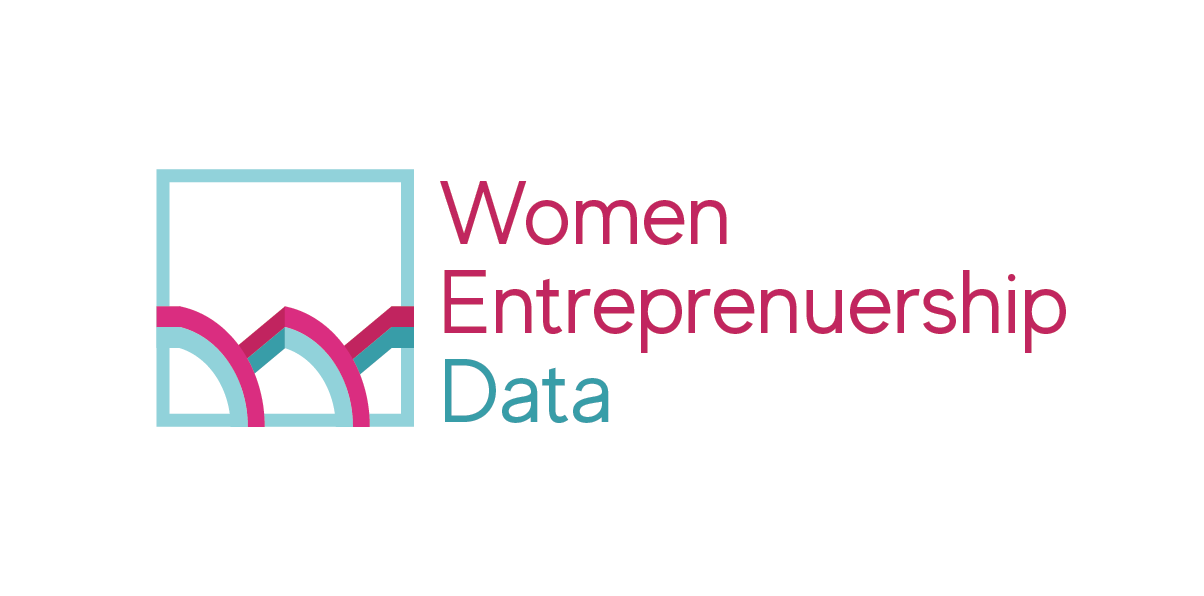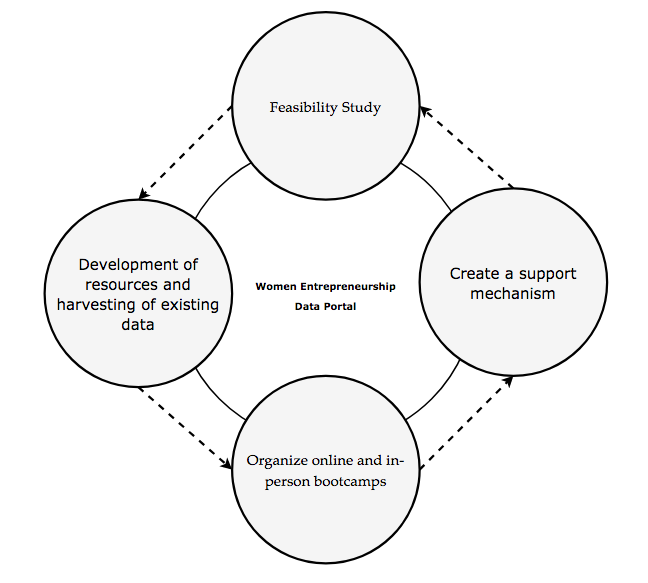This blogpost was jointly written by the project leads of Women Entrepreneurship Data (WEData) Nepal.
Women’s role inside the family in Nepalese society has evolved in recent decades with an increase in levels of education and the need for income in families to sustain the growing inflation. But women are not equally participative, due to sociocultural and economic setbacks.
There is a very difficult situation for women entrepreneurs to start a new business, as the resources are not easily available for market research. At the same time, the recurring crises which happened in Nepal over the past decade make women’s ventures take the backseat in the entrepreneurial race as women are bound to take the role of caretakers and givers, more often rather than giving priorities for self-decision making, articulateness, and opinion formation.
To understand/highlight the current scenario via ground research and help women entrepreneurs to foster in the market of Nepal by the effective use of data and technology, we announced Women Entrepreneurship Data (WEData) Nepal project on 8th March 2020.
But due to the challenge brought by the COVID-19 pandemic, the team of Women Entrepreneurship Data (WEData) Nepal have decided to make some modifications on our predetermined project activities by postponing the development and conduction of the comprehensive research for the certain time.
We are going to address the post-pandemic challenges created by COVID-19 for women entrepreneurs by opening up for data and resources so that they can tap into opportunity based on data-driven decision making and train them to reuse those resources to uplift the activities in the respective region.
Project design and activities
- Collect all publicly available data on women entrepreneurship and policies.
- List all existing policies and put together the data on entrepreneurship and economic engagement.
- Study them along with the context of women entrepreneurship.
- Prepare a data questionnaire for the development of narratives and visualisations.
- Compare the past and existing status of policies and their effect on the economy and women entrepreneurship.
- List all the stakeholders who will be affected by these policies, categorised according to their areas of involvement, sectors, types of entrepreneurship, geographic locations, etc.
- Prepare a report of findings stating the current status for women entrepreneurship (in terms of product/services and operating domain), underlying policies, and the factors affecting those.
- Put together different findings out of the study, etc. if there has been any correlation between policies reformation and data.
- Prepare narratives and visualisations.
- Create infographics about the findings for easier broadcast through online/social media.
- List evident problems and possible solutions to those.
- Develop a web portal to disseminate these findings and data publicly in an interactive fashion.
- Build a website to interactively visualise and publish the data.
- Include infographics, tools and other resources which can be helpful for entrepreneurs to boost business.
- Organise bootcamps and events to use the tools and resources created to uplift the activities in the region.
- Run tech adaptability online/offline workshops among local business owners and self employers.
- Push the businesses into technology for better reception.
- Verify the results of the workshops.
- Release the results to stakeholders and the general audience through multi-tiered online meetings, public announcements using social media and the internet, encouraging the data and evidence-based decision making for policies, and resource allocation.
- Have meetings with local organisations, communities, and public service offices in the region to deliver the findings, and help create smaller and local efforts on solving them locally.
- Report the project to the local government and donor organisations overlooking the resource and funding management for local and regional entrepreneurs.
- Announce the findings to the public through media channels.
Call for partnership
Meanwhile we are looking for engagement and collaboration opportunities with other stakeholders in Nepal and the region who are working towards revitalising the economy, technology, women empowerment and entrepreneurship sector back up after the pandemic. Please reach us via email at wedatanepal@gmail.com or you can also find us on Facebook and Twitter.
• Women Entrepreneurship Data (WEData) is a joint initiative of Women in STEM Nepal, Open Knowledge Nepal and Women Leaders in Technology; which aims to make the data related to women entrepreneurs of Nepal easily accessible such that it supports new entrepreneurs and other existing stakeholders with resources for evidence-based decision making. This blogpost was originally published at wistemnepal.org.
Open Knowledge Nepal is a non-profit civic tech organization comprised of openness aficionados. We believe that openness of data is powerful in order to have participatory government with civil society, eventually leading to sustainable development. The organization has been involved in research, advocacy, training, workshops and developing tools related to open knowledge. We also provide data services and solutions to various agencies and specialized in solving data related problems through consultation and tools development.










